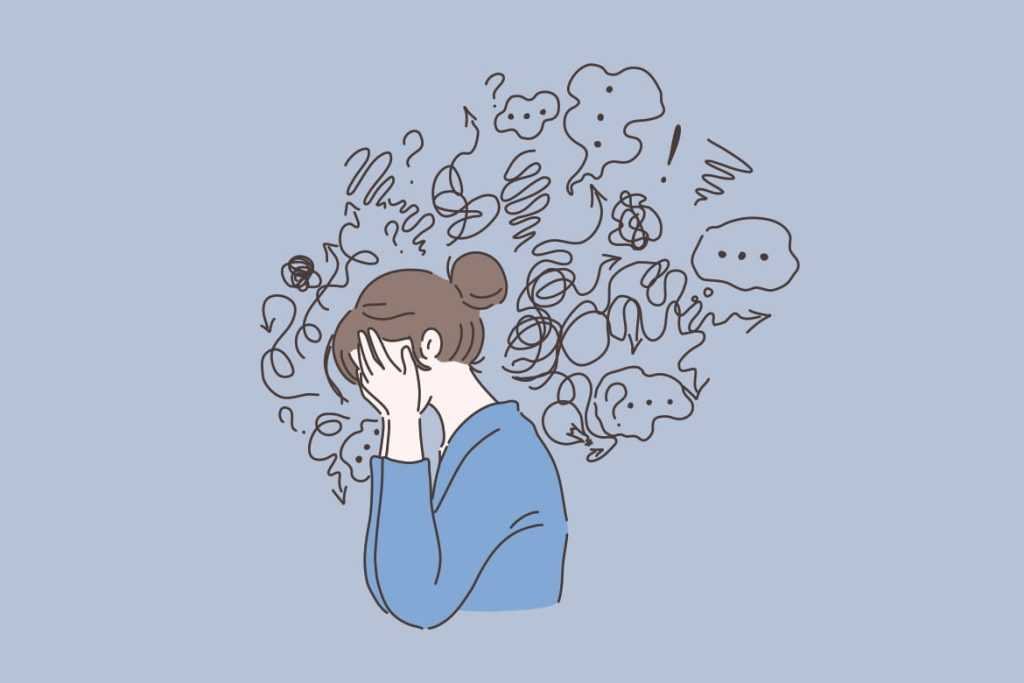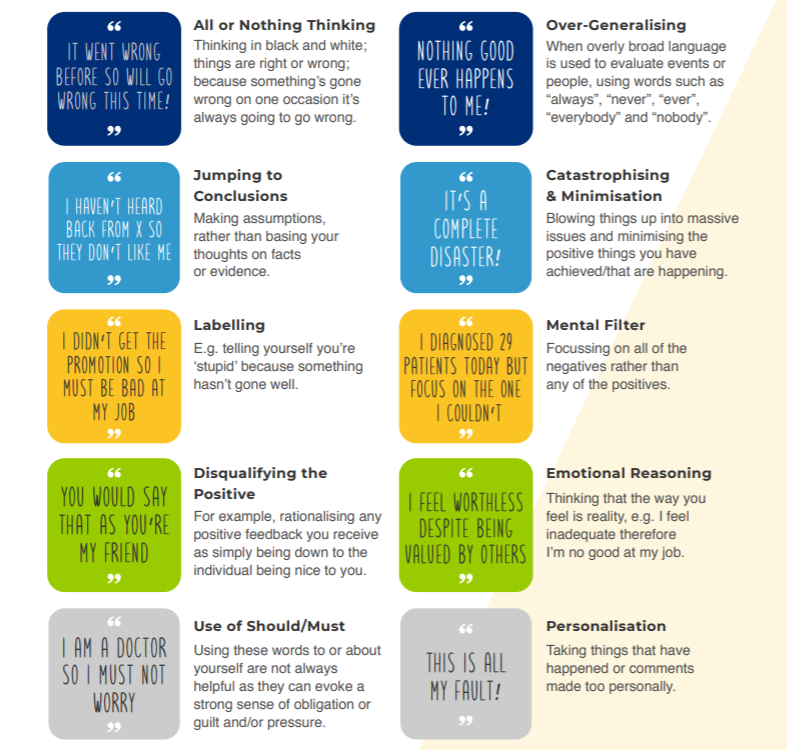
Stress is a big issue for Britain today. In the UK’s largest ever stress survey, 74% of people said stress has made them feel overwhelmed and unable to cope*. But there are lots of little ways you can help manage stress every day.
* Research conducted by YouGov for Mental Health Foundation (2018)
Managing Stress




Click on the picture below for some more ideas.
Building Resilience
Resilience refers to how effectively you handle difficult experiences in your life. It is often described as the ability to ‘bounce back’ and comfortably carry on in the midst of adversity. It also involves being able to effectively regulate your thoughts and emotions, as well as perceiving challenging situations as an opportunity, not a personal threat.
This video explores 5 top tips to improve your resilience.
This Resilience Toolkit from Wearebeyond.com looks at unhelpful thinking styles; which we can all be guilty of from time to time. This may help you to shift your thoughts, emotions and behaviour to more positive ones.

MIND explains that research shows it is easier to develop resilience if we don’t face certain barriers. But many of these things are difficult or impossible to change.
- Having a long-term physical health condition
- Having a mental health problem
- Experiencing discrimination and hate, including racism, homophobia, biphobia or transphobia
- Living far away from family or friends, or having difficult relationships with them
- Experiencing loneliness
- Experiencing poverty and money worries, including debt or problems with benefits
- Living in an area with poor access to services like healthcare, public transport and green spaces
- Being a single parent
- Being a carer
- Having poor quality housing
- Lacking safety and protection, such as living in areas with poor policing
